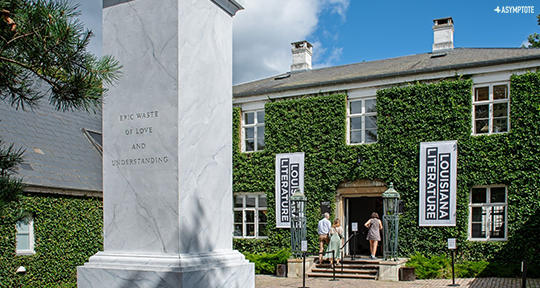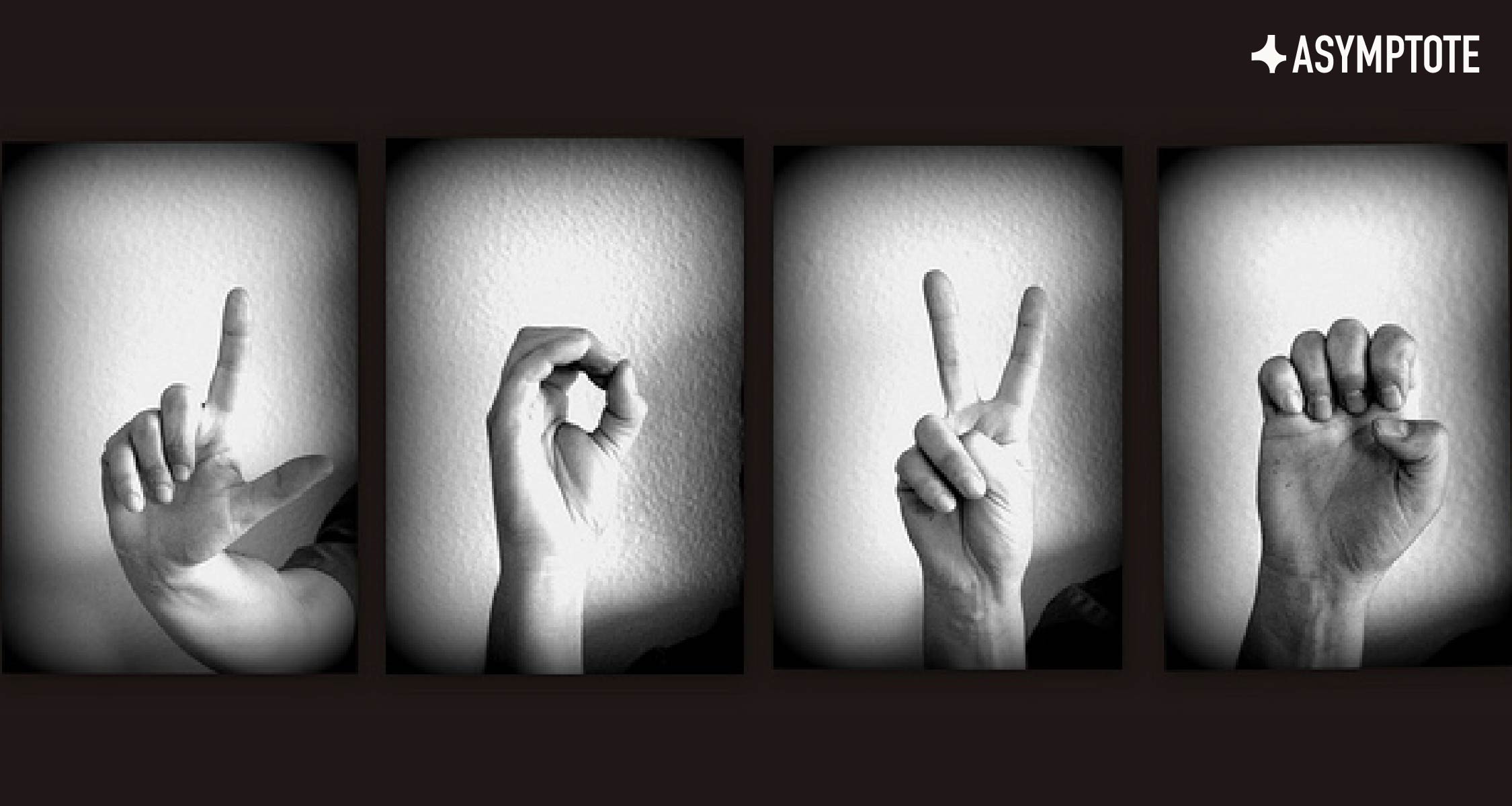From August 17 to 20, the Louisiana Museum of Modern Art in Zealand, Denmark, hosted the twelfth edition of the annual Louisiana Literature Festival. Since 2010, on the lawns parenthesized between Louisiana’s wings and the Øresund Strait, authors from around the world—including Adonis, César Aira, Olga Tokarczuk, László Krasznahorkai, Mariana Enríquez, and Itō Hiromi—have participated in readings, interviews, and conversations. The festival has also regularly hosted the most exciting names in Danish literature, such as Naja Marie Aidt, Dorthe Nors, and Signe Gjessing. This year, Asymptote’s Assistant Editor Michelle Chan Schmidt was in attendance, and reports now on the festival’s fascinating intersections, discussions, and performances.
The Louisiana Literature Festival has no theme, and as such, widely varying discussions of language and writing recur across the four days. In this year’s line-up of forty authors, sixteen write in languages other than Danish. Most of them are authors of English or Swedish, and thus there are only a few individuals representing other languages: Haruki Murakami in Japanese, Constance Debré in French, Claudia Durastanti in Italian, Eva Menasse in German, Camila Sosa Villada in Spanish, and Fríða Ísberg and Auður Ava Ólafsdóttir in Icelandic. Despite the limitations of this Euro-heavy selection, the festival’s vibrant dialogues present studies across language—including that of signs, of family, and of binaries in societies marked by syntaxes that divide rather than combine. In an interview, the Irish English-language writer Claire Keegan says that “narrative feeds on loss,” and this idea of loss feeds back across the festival’s symphony of languages in conversation.
Icelandic:
During an interview with her Danish translator, Erik Skyum-Nielsen, Auður Ava Ólafsdóttir states that her favorite childhood books were dictionaries. Each letter was a new chapter in a book of thirty-two chapters—a history of a language “in the margins” of global literature. Writers like Ólafsdóttir and Fríða Ísberg, as well as their translators across most European languages (with the addition of Arabic and Turkish in the case of Ísberg’s novel, The Mark), are instrumental in not only the continuance of Icelandic literature, but also in diversifying Icelandic modes of expression in a language anchored in the legacy of the sagas.



